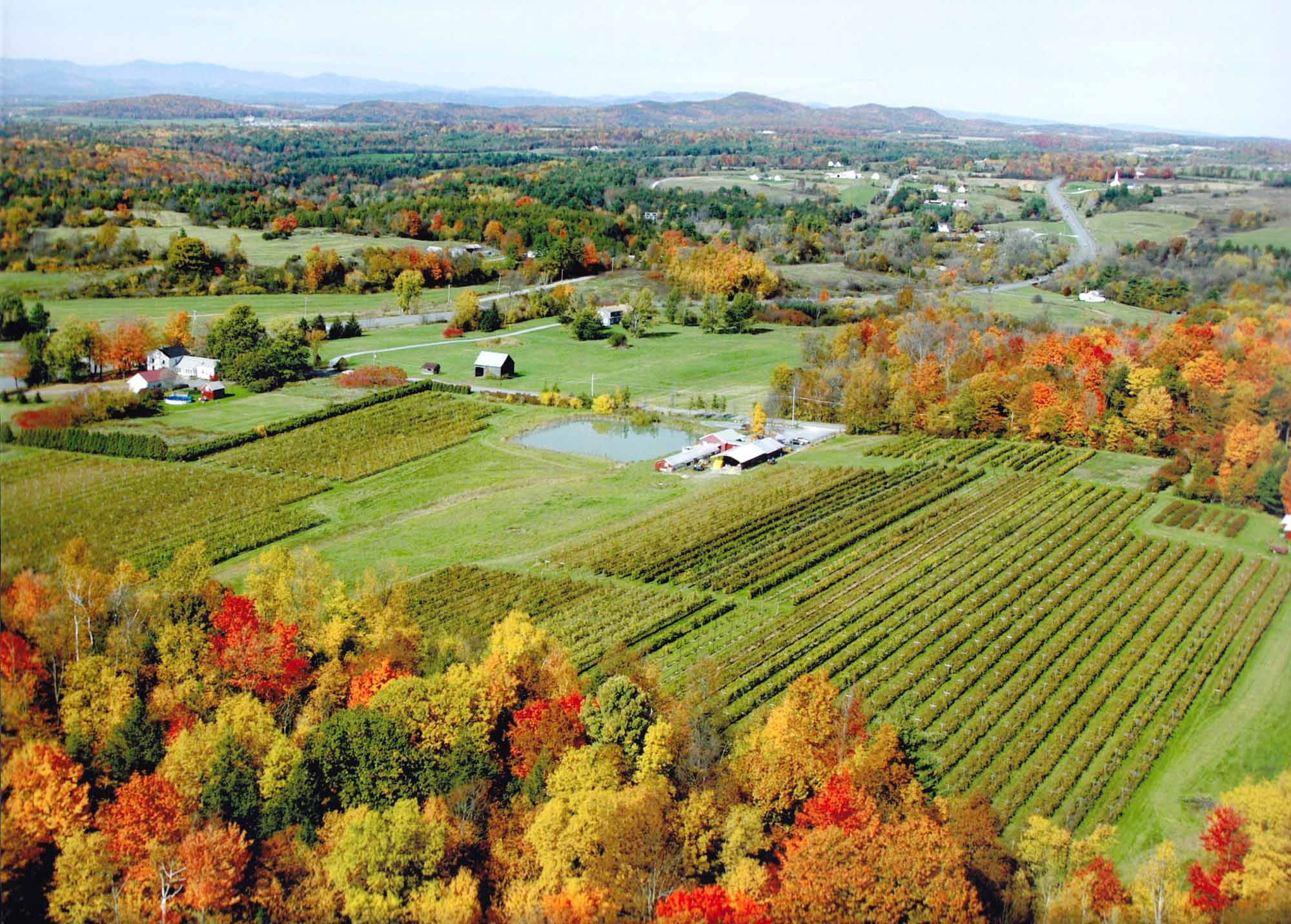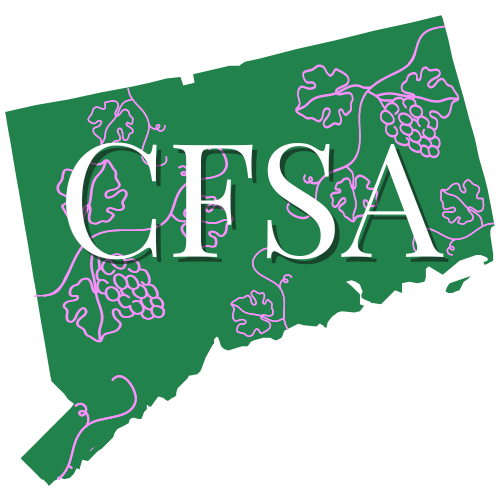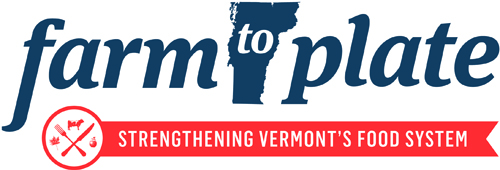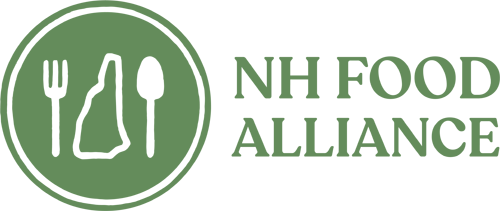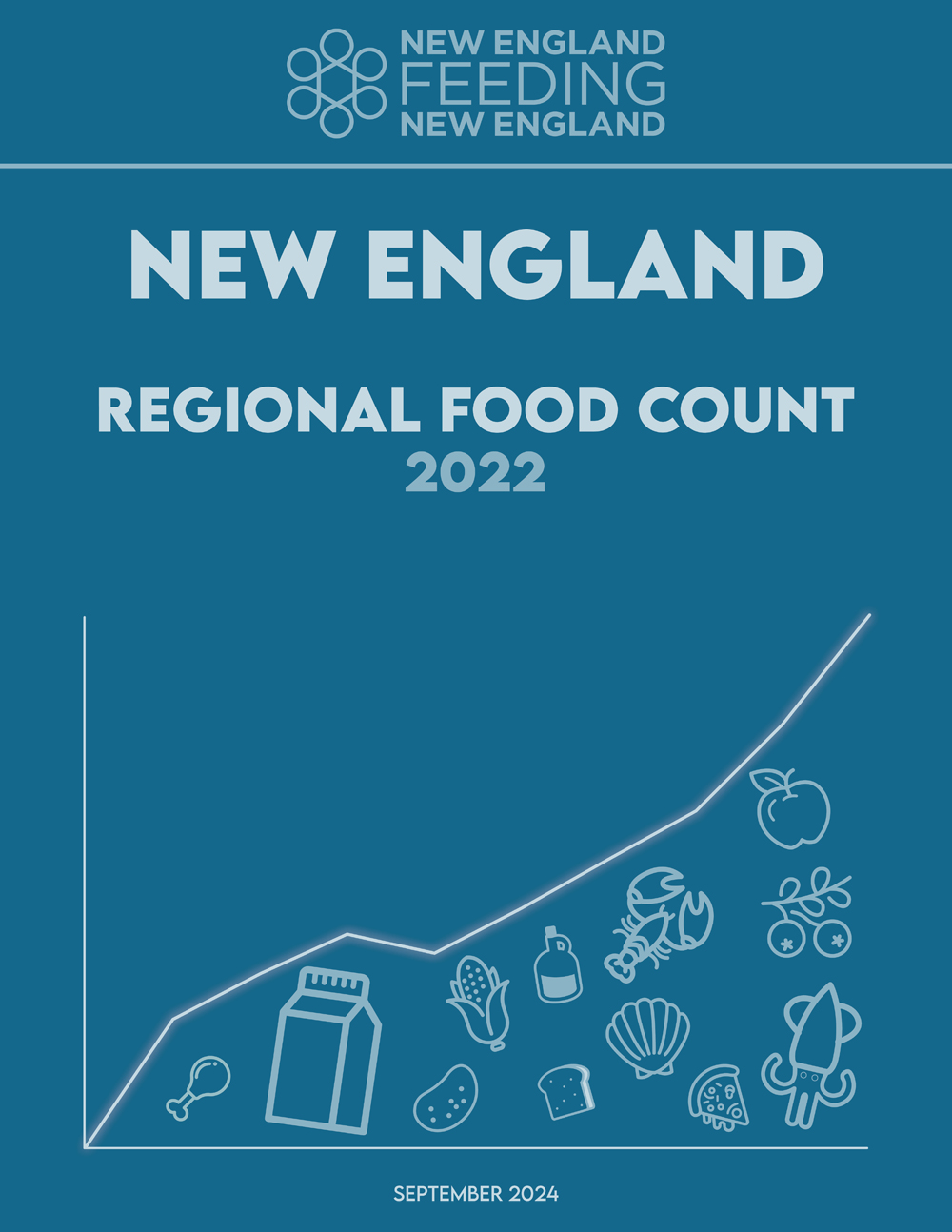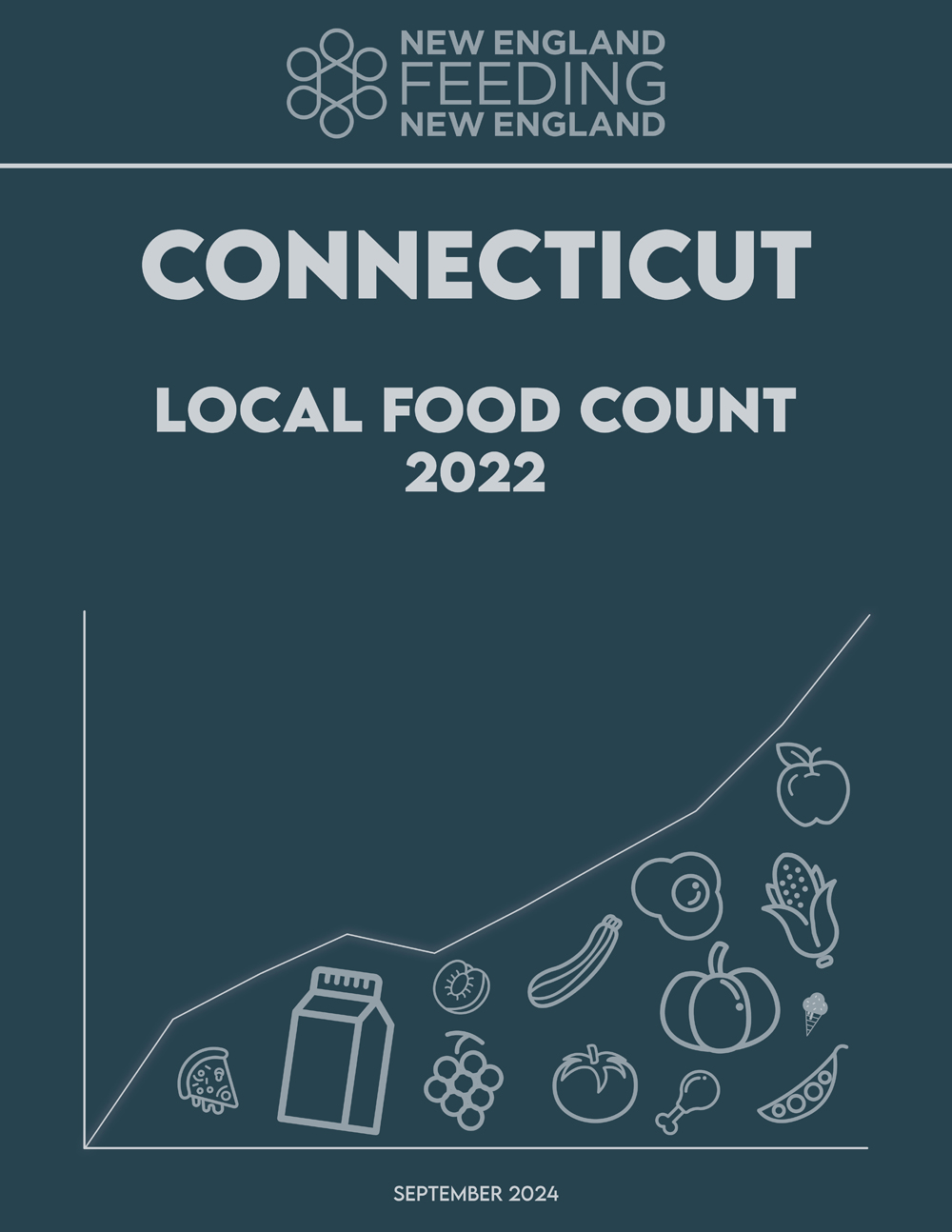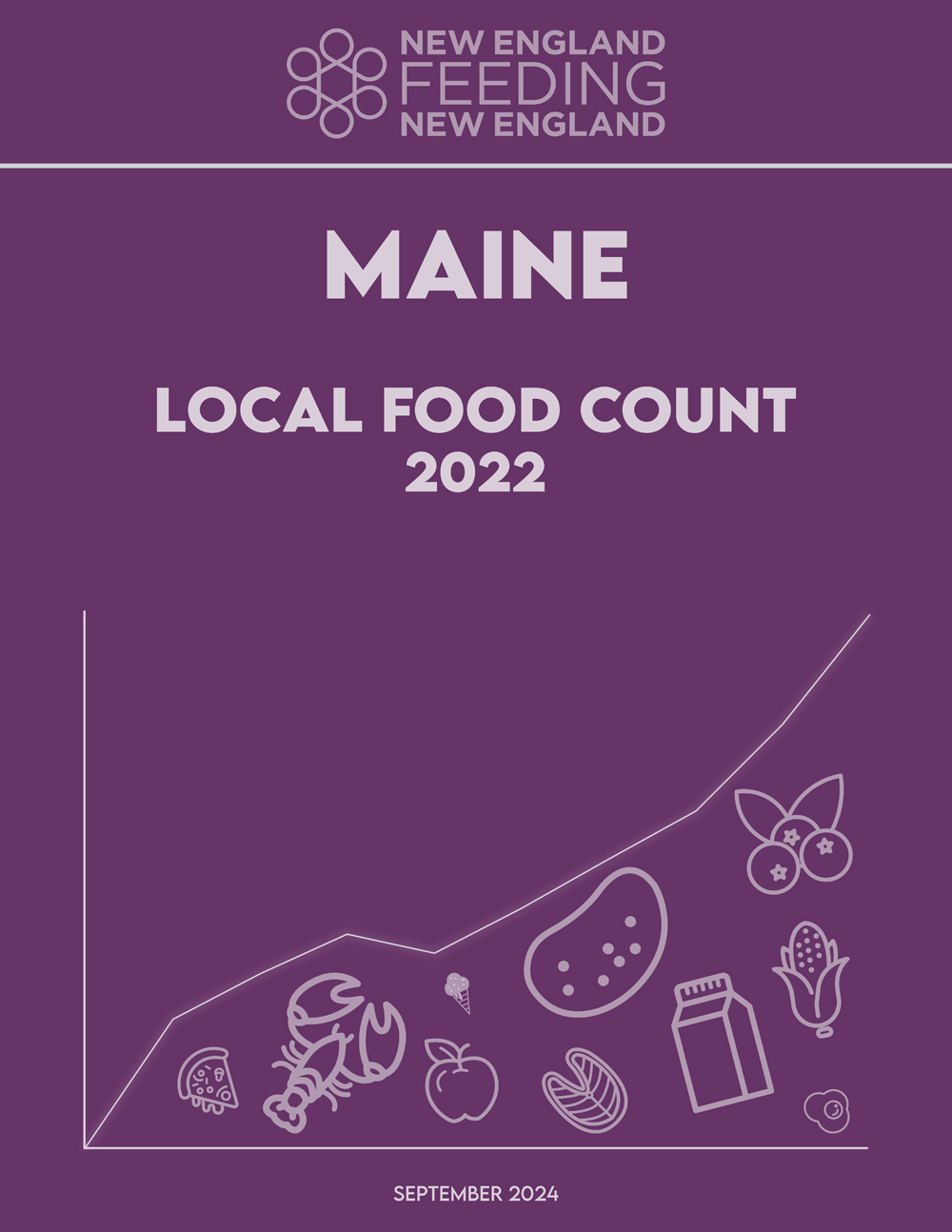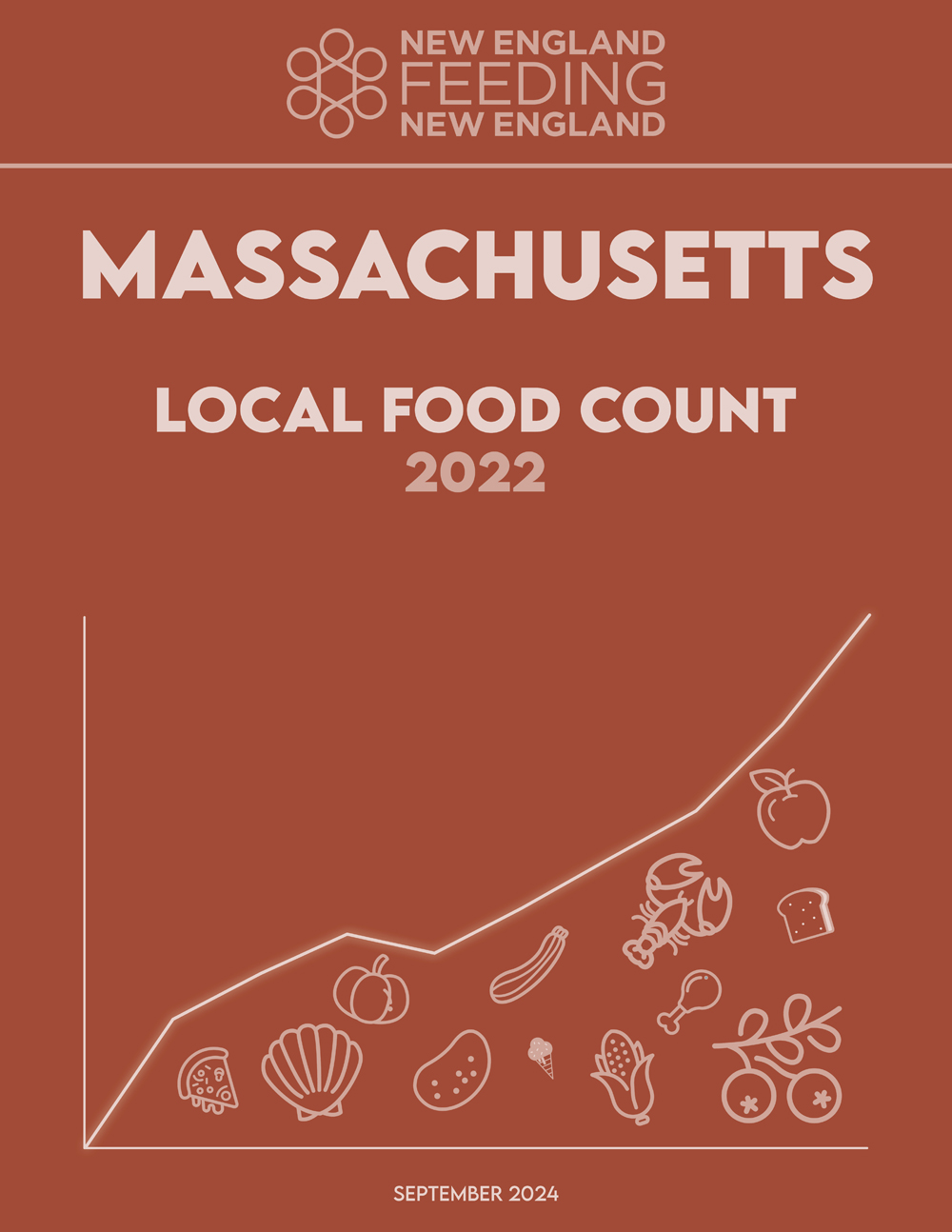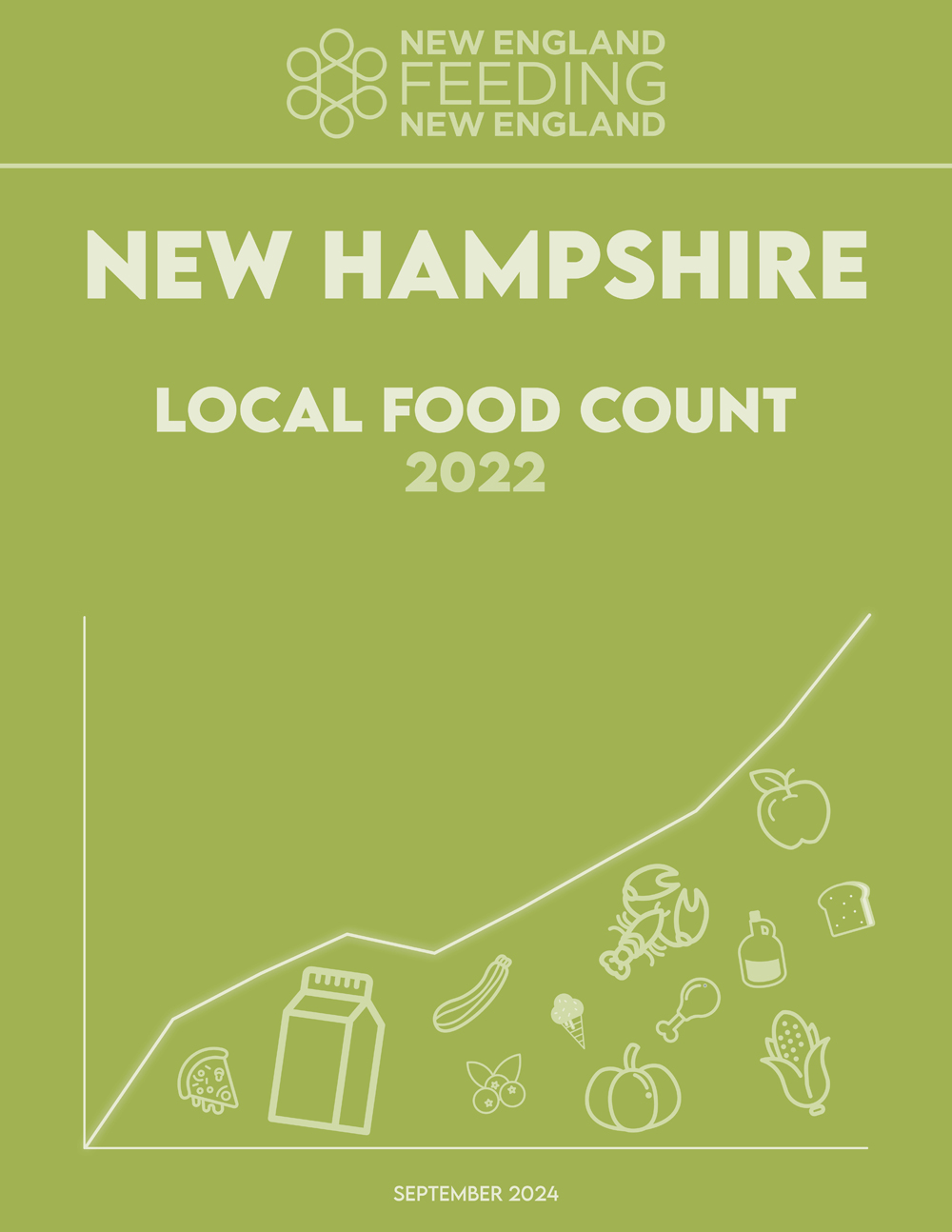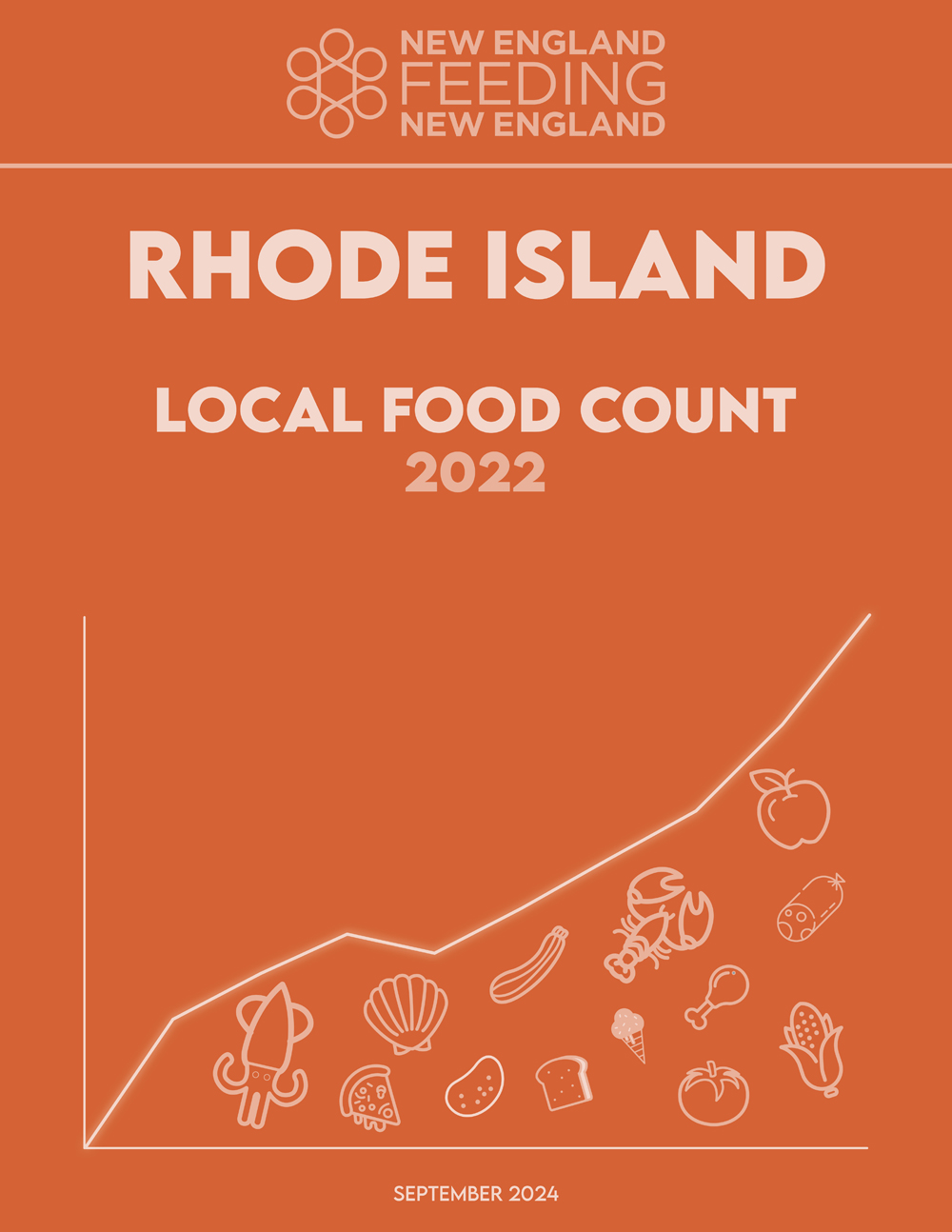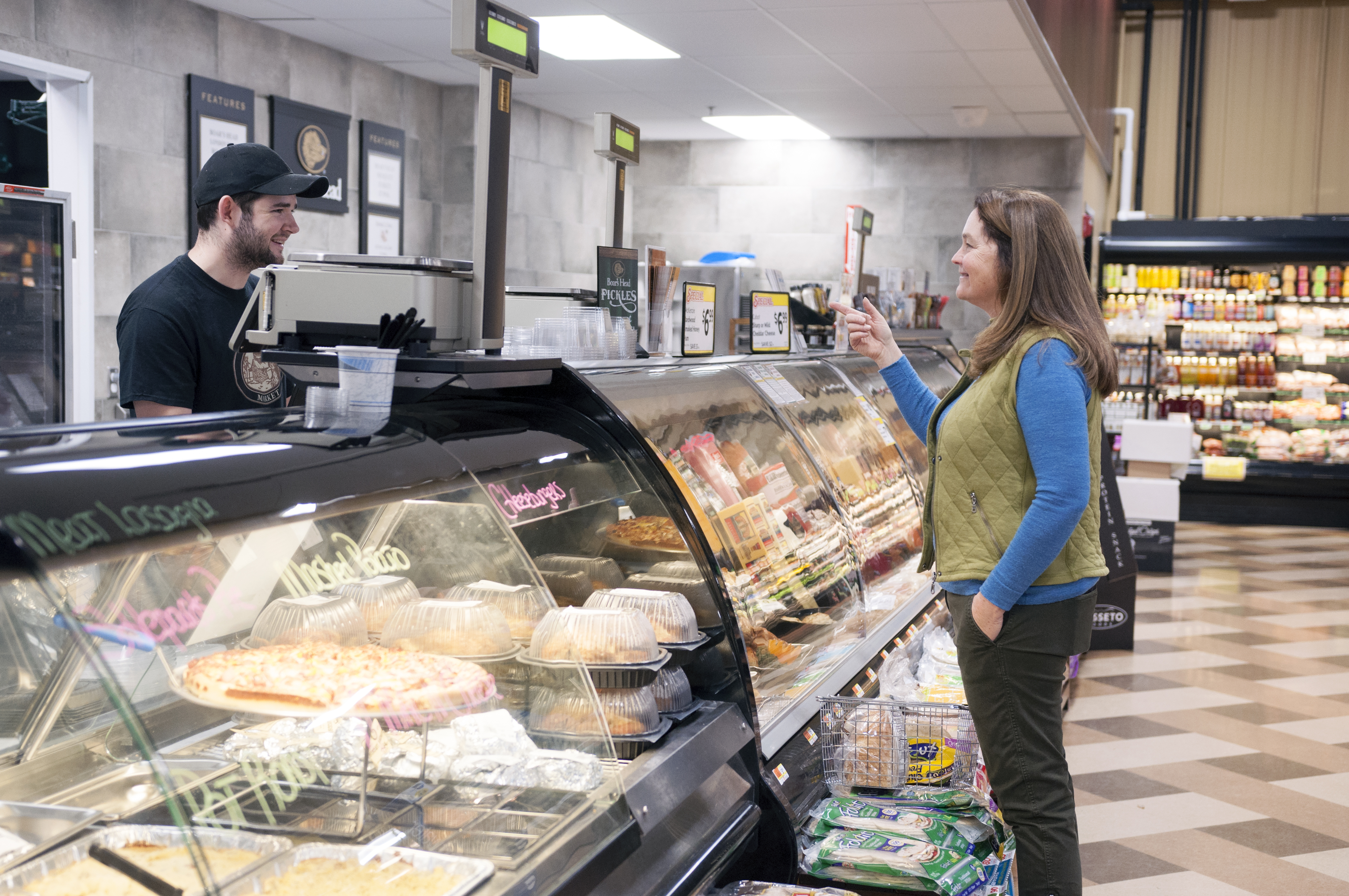
Local Food Counts
Support Local Food in New England
The food system is changing. Customers want local, affordable food.
The Local Food Count helps identify opportunities and guide investment in our local food economy.
Join a growing network of institutions, grocers, restaurants, distributors, and others in New England tracking and sharing their local food sourcing.
Let’s support New England’s farmers, fishers and food makers together.
STEP 1: Take the Pledge
Take the pledge to confirm your participation in the 2025 Local Food Count!
Why Pledge?
When you source from local farmers and producers, you’re keeping dollars in the community, building relationships with the people who grow, catch and make our food, and connecting customers to unique quality products. When you share your commitment to local sourcing, it inspires others and creates a stronger, more resilient regional food system.
Your pledge is to learn more and get counted. We will never share your personal or company information. All data will be kept confidential and only reported in aggregate to show regional trends and inform future reporting.
STEP 2: Get Ready
Download the worksheet that is most applicable to your business, organization or institution and fill it in to test out how much you are buying or selling of local foods in comparison to foods from outside New England.
For institutions, restaurants and retail-grocers »
For food hubs and distributors »
Review past results to see how your state contributed »
Contact your State Team directly for support:
STEP 3: Spread the Word
Help us prepare for a successful count by sharing this opportunity with businesses and institutions in New England that buy or sell local food.
The Local Food Count will begin gathering sales and purchase information from businesses and institutions across New England at the start of the New Year.
Help us collect data that will support a stronger, more resilient regional food system.
Check your inbox on January 1, 2026, to Get Counted!
2026 Local Food Count Team
Core Team
Scott Richardson, PhD, MBA, Northbound Ventures Consulting, LLC
Scott Richardson is co-founder and Partner of Northbound Ventures Consulting, LLC. He brings a broad range of public health, operations, finance, and strategy experience to his work serving the public, private, and philanthropic sectors. Previously, Scott was the Director of Research and Strategic Initiatives for Project Bread, Massachusetts’ statewide anti-hunger organization, where his responsibilities included identifying, implementing, and measuring the impact and feasibility of new projects to improve access to healthy food for underserved populations. Scott’s research on improving public school nutrition has been documented in several academic journals. Scott holds a PhD in Population Health Sciences with a focus on nutrition from the Harvard T.H. Chan School of Public Health, an MBA from the FW Olin Graduate School of Business at Babson College, a BA from Rutgers College and a Professional Certificate in Sustainable Food Systems Leadership from the University of Vermont.
Scott Sawyer, Vermont Sustainable Jobs Fund
Scott lives in Southern California with his wife and two children. He has worked on Vermont Farm to Plate, San Diego County Food Vision 2030, New Hampshire Food and Agriculture Strategic Plan, Rhode Island Food Strategy 2030, and all things New England Feeding New England.
Holly Fowler, MBA, Northbound Ventures Consulting, LLC
Holly Fowler is co-founder and CEO of Northbound Ventures Consultating, LLC, a small, woman-owned firm in Montpelier, Vermont and centered around food systems, outdoor recreation, population health, and community economic revitalization. She routinely supports organizations and institutions nationwide to identify and implement strategies that prioritize equitable development. Prior to starting Northbound, Holly served as the Senior Director of Sustainability & Corporate Social Responsibility for Sodexo North America, the world’s second largest provider of institutional food service. There she guided progressive operational and sourcing practices across all markets – corporate, academic, healthcare, leisure and government. Holly holds a Professional Certificate in Sustainable Food Systems Leadership from the University of Vermont, a Masters in Business Administration from Babson College, and a BA from Bowdoin College.
Ellen Kahler, Vermont Sustainable Jobs Fund
Ellen Kahler is the Executive Director of the Vermont Sustainable Jobs Fund (VSJF) which manages Vermont statewide food system development efforts known as Vermont Farm to Plate. VSJF/VT Farm to Plate is part of the New England State Food System Planners Partnership and provided grants management and administrative support to the New England Feeding New England project. Ellen was actively involved in working with all the researchers associated with this project and in ensuring the project deliverables were achieved. In March 2022, Ellen served as the primary staff working with the researchers to complete the project and publish the results. Ellen helped shape and publish the 2011-2020 Farm to Plate Strategic Plan and the 2021-2030 Vermont Agriculture & Food System Strategic Plan, as well as the development and work of the statewide Farm to Plate Network. Ellen has served on the Working Lands Enterprise Fund since its inception in 2012, which annually distributes grants to food system businesses and service provider organizations, and was appointed by Governor Phil Scott to serve on the Future of Agriculture Commission in 2021.
Leah Rovner, New England Feeding New England
Leah Rovner is the Director of the New England Food System Planners Partnership, a collaboration of seven-state level food system organizations and representatives from six-state agricultural, environmental and economic agencies that aims to meet the New England Feeding New England goal of having 30% of the food produced in the region consumed in the region by 2030. Leah facilitates efforts across the six states to expand and fortify the region’s food supply and distribution systems – her work overlaps key food system areas such as food security, emergency preparedness, supply chain coordination, strategic food systems planning and general operations and administration of the Partnership’s core activities. Leah worked at America’s Test Kitchen for 9 years running test kitchen operations for all media production. She spent several years in specialty retail sales at Whole Foods Market, transitioning into grant writing and strategic consulting for several local food businesses in Maine including Maine Farm & Sea Cooperative, a service provider that works to maximize the amount of local foods being served in Maine institutions.
State Teams
Vermont
Lead Data Collector: Annie Harlow, Annie Harlow Consulting
Annie Harlow is an independent retail and operations consultant who helps farms and food businesses grow to meet the complexities of food operations, marketing and distribution variables to meet market demands. She specializes in designing workshops, seminars and forums to build relationships among producers, buyers, and distributors for increasing local and regional sales. She has been the lead researcher on several local and sustainable food tracking projects since 2011. Annie oversees The Grocers Project: Retail Collection through VSJF’s Farm to Plate and the Vermont Agency of Agriculture, Food & Markets. She is tasked with expanding sales for farmers, independent grocery, and co-op stores with various types of training: on-farm and in-store support, retail and wholesale data collection, and is the content creator for a monthly e-newsletter, Small Bites. She was instrumental to the Farm to Plate Strategic Plan 2021-2030 Issue Briefs.
State Lead: Jake Claro, Farm to Plate
Jake is the Farm to Plate Director at the Vermont Sustainable Jobs Fund. He is responsible for providing facilitative leadership and strategic coordination for the Farm to Plate Network’s work to implement Vermont’s food system plan. He manages the Farm to Plate team at VSJF and works to align activity among 350 stakeholders and increase collaboration between private sector, nonprofits, and government to strengthen Vermont’s farm and food economy for the benefit of all Vermonters.
Maine
Lead Data Collector: Tanya Swain, SmallFish Consulting, LLC
Lead Data Collector: Chelsea Marshall, PhD, Consultant
Chelsea is an independent consultant in Maine, specializing in stakeholder engagement, facilitation and research. Her work focuses on putting human rights into practice at the local level and involving people who are most affected by injustice in the food system in co-designing solutions to systemic challenges. She is Director of Special Projects at the National Right to Food Community of Practice, served on the management committee for Dig-in Brutsfield, a community owned greengrocer in Edinburgh, and was a founding board member of Scotland The Bread, a collaborative project to grow better grain and bake better bread. Chelsea has a PhD in Law and Masters in Human Rights from Queen’s University Belfast, and a BA in Government from Smith College.
State Leads: Michelle Webb and Brittany Peats, Maine Department of Agriculture, Conservation + Forestry
Connecticut
State Lead: Martha Page, BearTown Advisors
Martha is a consultant that applies broad system and non-profit expertise for state and regional food system planning, project development and support, organizational development and fund development, grant writing, and social enterprise ventures. She has more than three decades of multi-disciplinary management experience in nonprofit, government, and private sector settings. Her experience encompasses planning and operational expertise in public health and in health plan administration, with a strong emphasis on environmental and urban health issues, measurement of results, grants application and management, process improvement, appropriate resourcing, workflows, and technology.
State Lead: Meg Hourigan, Connecticut Food System Alliance
Meg is the Coordinator of the Connecticut Food System Alliance, which works toward a just, sustainable food system by fostering collaboration and alignment among the state’s food system actors and advocating for food policy and systems change informed by food justice. CFSA is working with network members to develop a state food action plan booted in food justice to transform the CT Food System. The plan will serve as the roadmap for equitable food access, diverse ownership of food system assets, and sustainable, viable food production and distribution.
State Lead: Cyrena Thibodeau, Connecticut Department of Agriculture
Rhode Island
Lead Data Collector: Minnie Luong, RI Commerce
innie’s role within the Food Strategy Department is to help create a competitive advantage for Rhode Island’s local food producers by providing value chain coordination for locally grown, harvested and produced food. She serves as the point of contact for middle of the supply chain entities (processing, aggregation and distribution) for market development and provides business assistance and market “matchmaking” to build connections between buyers and suppliers in Rhode Island and the region.
State Leads: Georgina Sarpong and Alison Macbeth, RI Commerce
New Hampshire
Lead Data Collector: Nicole Cardwell, NH Food Alliance
Nicole is the Director of the NH Food Alliance, a statewide network that engages and connects people dedicated to growing a thriving, fair and sustainable local food system in the Granite State. The NH Food Alliance connects and amplifies the incredible work of our partners throughout New Hampshire and New England by catalyzing collaboration and collective action between 150+ network partners in alignment with the 2025 NH Food and Agriculture Strategic Plan which outlines 140 recommendations for tackling a range of challenges facing agricultural stakeholders. NH Food Alliance works together with its network partners to grow and sustain local farms, fisheries, and food businesses, secure healthy food access for all, build climate resilience, and ensure racial equity in our communities and workplaces.
Massachusetts
State Leads: Julianne Stelmaszyk and Bonita Oehlke, Massachusetts Department of Agricultural Resources; Kristina Pechulis, MA Food System Collaborative
FAQ
What is the goal of the 2025 Local Food Count?
Our goal is to capture the percentage (and corresponding dollar value) of local and regional food and beverage products bought or purchased in 2025 from each state in New England.
How is ‘local food’ being defined for the purposes of this project?
Because the Vermont Legislature has adopted a local food definition for the state (and is the only state in the region to have done so), we have adapted the Vermont definition to be inclusive of the other five New England states.
Click here for a complete list of the product categories and corresponding definitions
How will the Local Food Counts data be used?
Ultimately, this regional food count figure can be used to encourage greater regional food sourcing through various market channels in the region. The 2025 regional percentage will give us a relative sense of how close we are to achieving our 30% goal. By conducting the local food counts in all six states again in 2031 (for 2030 data), we will be able to see whether or not we achieved our 30% goal for 2030.
In September 2026, we will publish the 2025 Local Food Count reporting—this will include six individual state reports and one regional report. We will also update our aggregated data by food category and market channel for 2025 in our Local Food Counts Data Dashboard.
We also plan to update the 2022 Local Food Count reporting across these same categories in the Fall of 2025.
How will the Local Food Counts Team ensure the data is kept secure?
All information collected shall be kept confidential and will be analyzed solely by the Lead Data Analyst, Scott Richardson, with no identifying raw data shared with any other parties. The results of the Count will only be displayed in aggregate (e.g., local food sales across ALL grocery stores in a particular state, all local food sourcing across ALL restaurants in a particular state, all dairy sales across all market channels in a particular state).
The Local Food Counts data collection process is sponsored by the New England Food System Planners Partnership, a collaboration of seven-state level food system organizations and representatives from each of the six state agricultural, economic and environmental departments. Non-Disclosure Agreements will be available for businesses interested in a formal commitment of confidentiality.
